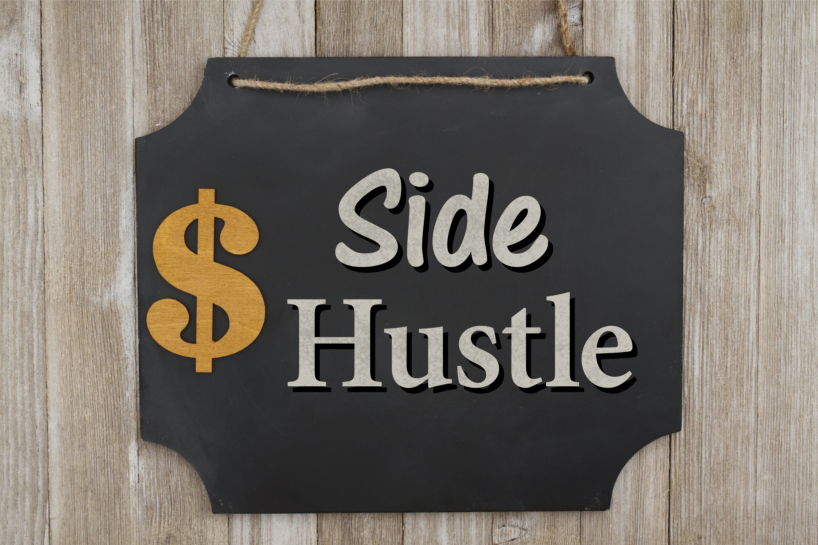
“Like mothers, taxes are often misunderstood, but seldom forgotten.” - George Bramwell
Who doesn’t love extra cash? These days, a lot of people need to work more to make it. Call them hustles, gigs, second jobs, or part-time on the side… They all amount to additional employment for a few extra bucks.
Extra bucks for Uncle Sam, too, in the form of taxes. The government wants those dollars – and sure isn’t shy about coming after them with new rules and new powers of enforcement.
Here’s how to protect yourself.
New tax and reporting
Almost half of working Americans – some 70 million people – report having a side hustle; tens of millions more want to get one. Lots of extra cash flying around? Not really: A lot of respondents to a recent survey said they make only a couple hundred bucks a month from a side job.
Too bad there are 12 months in the year.
Starting in 2022, IRS rules require reporting income for some transactions of just 600 dollars (way, way down from previous levels). The American Rescue Plan Act of 2021 made sure you’re going to get an IRS Form 1099-K if you sold goods or services via platforms like eBay, Etsy, and Uber and if that platform used third-party transaction networks such as PayPal.
Technically, there was always a good chance you’d get a tax form (and have to declare as income) money that you received for work, no matter how small. This new rule formalizes the ability of the IRS to crack down on it.
You might soon get your first 1099-K ever. What then?
Wiggle room
Your best bet regarding reported income, no matter how little, is to declare it on your tax return.
But there’s income and there are personal expenses. Not every deal you do on these payment apps is taxable. A hundred bucks for your birthday from your aunt, your friend squaring for the dinner tab last night… Personal stuff is okay with the IRS. More importantly, income from something you sold on say, eBay, is also probably okay – if you sold it for less than you paid for it.
That’s where paperwork comes in, such as an original receipt or even an old bank or credit card statement. While we’re on the subject, operating your own business and incurring your own expenses can open sesame to many legit deductions, like everything from office supplies to even some parts of your home – but taking them requires a lot of care and a lot of backup documentation. This is a whole different topic you should be aware of…
If you use a payment app and next year you get a 1099-K, make certain that the app knows that the money is for business income or personal expenses. The app might in fact send you – and the IRS – a 1099-K and leave it up to you to report the income or explain that the money somehow wasn’t taxable.
Most payment apps plan to ask users like you for detailed tax info: your Employer Identification Number, Individual Tax ID Number, or Social Security number, for instance. Payment apps should also have a way for you to label transactions as “personal” or “business.”
And when the 2022 tax forms do start dribbling into you freelancers out there, you might find yourself getting both a 1099-K and a 1099-MISC or a 1099-NEC for the same transaction. Once more, it’s up to you (and we can help) to clarify the matter to the IRS.
Again, we stress: Keep every receipt you can for deductions and to contest an incoming 1099-K. This whole rigmarole is about paper trails.
What should you do?
A lot of people – craftspeople, pay app execs – argue that this new threshold is unfair when tax audits of the wealthy seem to be trailing off. And until this new low threshold is raised again, will the IRS, with all its troubles, have a reasonable chance to keep up with every single taxpayer who earns six hundred bucks?
Maybe and maybe not. The IRS did just get billions of dollars for enforcement, but it’ll be years before that really takes effect, and even then, the agency has pledged to wage war first on rich tax dodgers. IRS guidance on the new threshold has been skimpy.
It’s always your wise course of action to assume the IRS will eventually find out about reported income you don’t declare. Period.
Another wise move: Keep a sharper eye on your payment app. Different app companies have announced different approaches, some guaranteeing compliance and thorough division between business and personal accounts – and others claiming they don’t have to comply at all.
Which do you think is safer for you, the taxpayer?
Honestly, it’s just a good idea to make sure you’re reporting income to the IRS. They have a way of finding things out.
Because I want you to be on the right side of the IRS, but also hold onto as much of your income as you legally can.
BE THE ROAR not the echo®
Janet Behm
Utah Real Estate Accountants